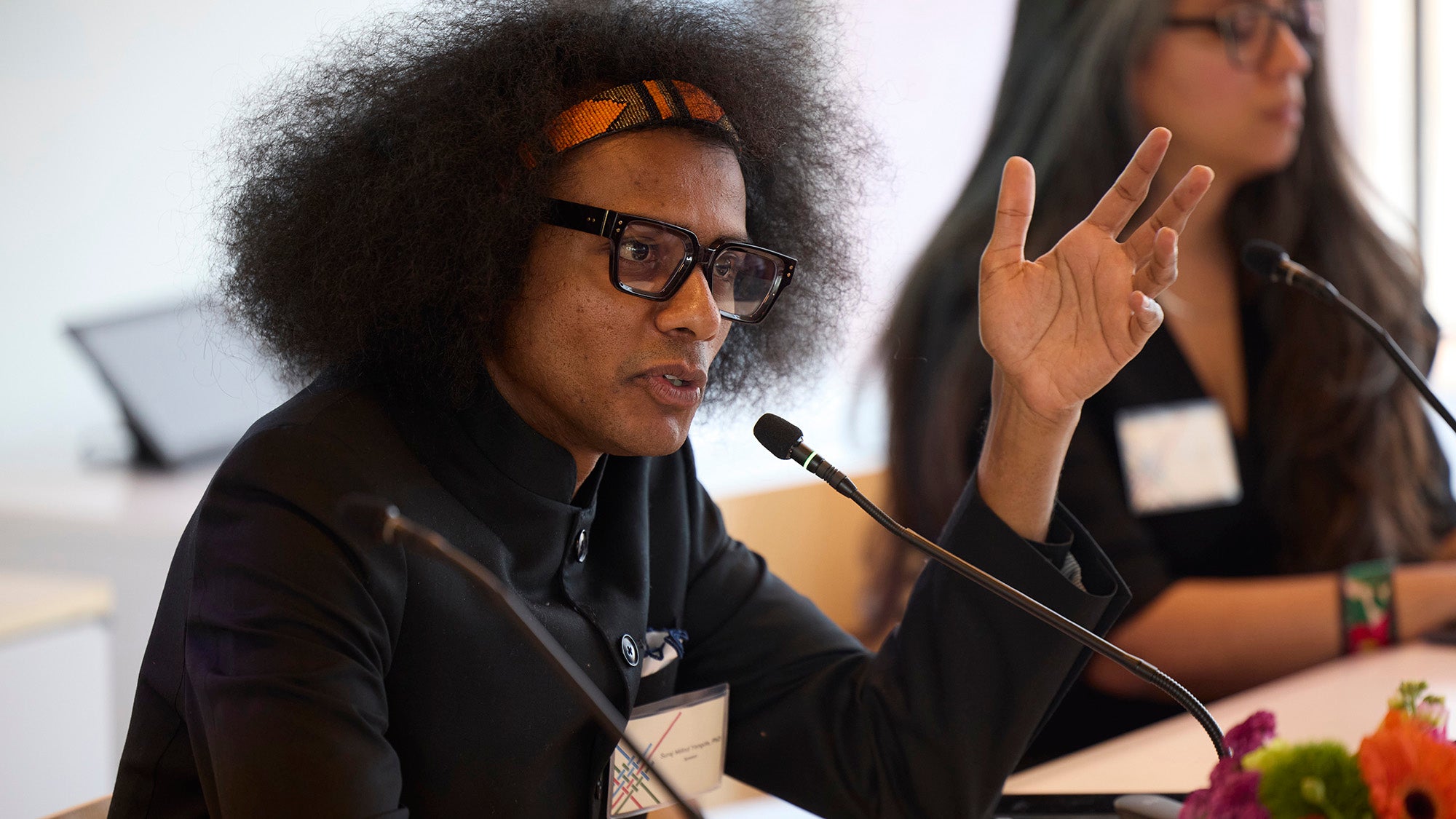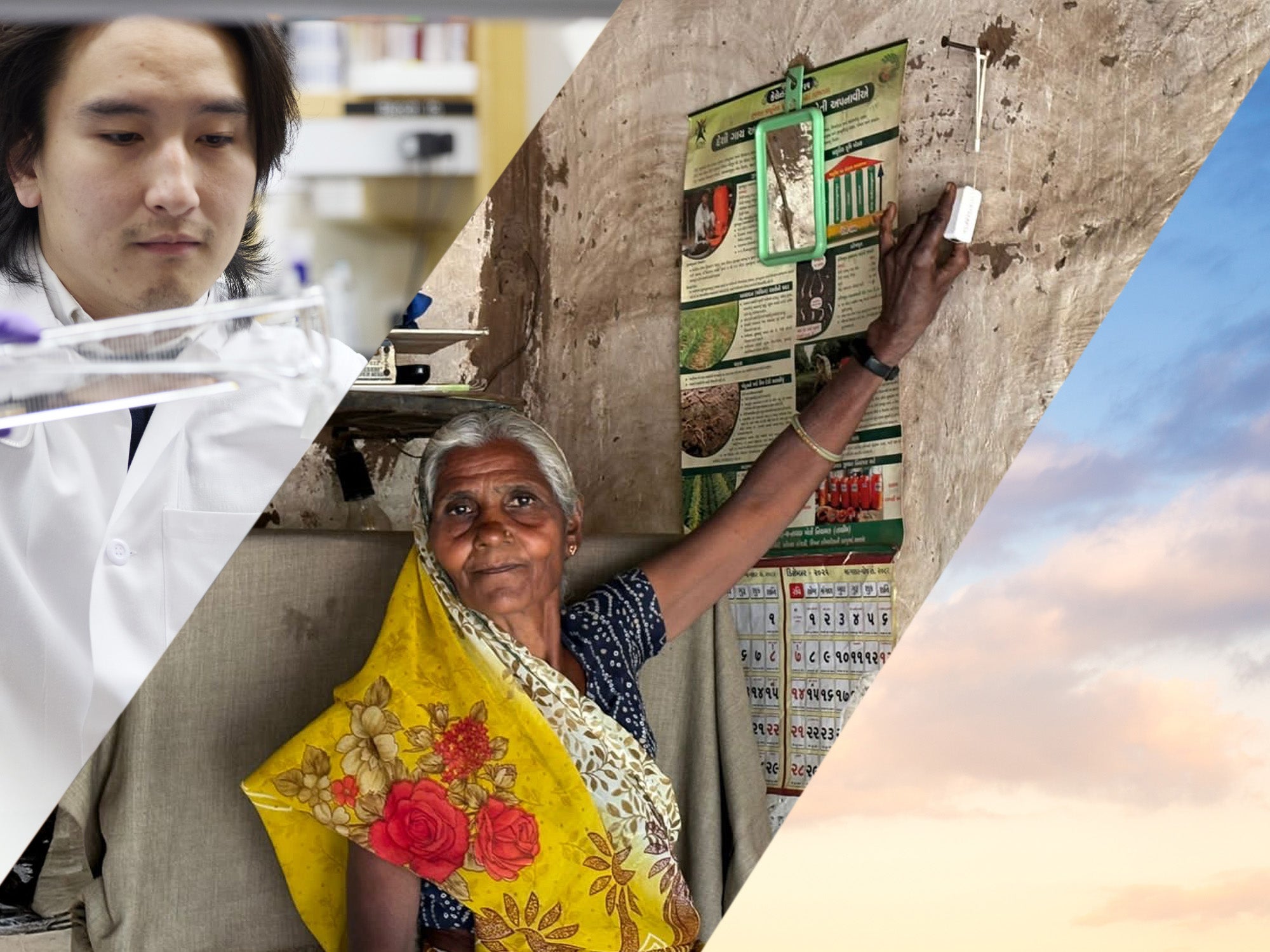Conference explores injustices against Roma people, other groups

Discrimination faced by marginalized communities, including the Roma people and others, was the focus of the 13th annual Roma Conference, titled “Unraveling Injustice and Power Structures,” which was held at Harvard’s Smith Campus Center on April 3. The event was co-sponsored by the François-Xavier Bagnoud (FXB) Center for Health and Human Rights at Harvard University and featured more than 20 speakers from Harvard T.H. Chan School of Public Health and other institutions.
“The work of the Roma program falls underneath the umbrella of the FXB Center, where we believe that health is a human right and that upholding that right really requires us to tackle structural violence that makes health so inaccessible to so many,” said Jehane Sedky, FXB Center executive director, in opening remarks. “From its founding over 20 years ago, the FXB Center has focused deliberately on urgent and overlooked priorities, beginning with children orphaned by AIDS, an area of scholarship that was largely absent at the time. The Roma program continues this legacy.”
The conference’s keynote panel featured Suraj Yengde, a W.E.B. Du Bois Fellow at Harvard University and the author of the forthcoming book “Caste: A Global Story.” Yengde highlighted the origins of race and caste as concepts, and talked about how oppressors have racialized and marginalized certain groups throughout history.
Panelist Ioanida Costache, assistant professor of ethnomusicology at Stanford University, studies the legacies of Romani historical trauma through Romani music and art. She noted that Yengde’s presentation provided a challenge to examine the “architecture of social hierarchies” by exploring not just race and racialization, but also factors related to identity such as caste, ethnicity, ancestry, gender, class, and geographic difference. “This approach is crucial as it broadens our understanding of oppression,” she said.
Experts on another panel highlighted cases of racism throughout the world, including among the Romani people, Palestinians, and Brazilians.
Angéla Kózcé, a sociologist and assistant professor at Central European University in Budapest and Vienna, discussed the damaging effects of racial discrimination among the Roma, including hunger, poor education, and low employment rates. Citing statistics from a report from the European Union Agency for Fundamental Rights, she said that, as of 2022, 80% of Roma were at risk of poverty, compared to a European average of 17%; 22% lived in a house with no tap water; and 46% had no indoor toilet or shower. The report also found that 29% of Roma children had gone to bed hungry at least once in the prior month, and just 44% of young Romani children received early childhood education. Additionally, 25% of Roma people reported feeling discriminated against in the previous five years.
Gracyelle Costa Ferreira, a professor in the Department of Social Policy at the Universidade Federal do Rio de Janeiro, spoke about racial discrimination in Brazil. She noted that over 55% of Brazil identifies as Black and that many face discrimination in the form of segregated facilities, societal mistreatment, and limited opportunities.
Osama Tanous, co-director of the FXB Center’s Palestine Program for Health and Human Rights, discussed the struggles facing Palestinians who were displaced from their ancestral homes during the creation of the state of Israel and who are now suffering amid the war in Gaza. Other FXB panelists included Jacqueline Bhabha, director of research; Brittney Francis, research scientist; Nile Nair, affiliate; and Bram Wispelwey, co-director of the Palestine Program.
The conference also included a discussion about three books on the topic of anti-Roma racism slated to be published in 2025, including one by Margareta Matache, lecturer on social and behavioral sciences and co-founder and director of the FXB Center’s Roma Program, titled “The Permanence of Anti-Roma Racism: Unauthored Sentences.”


